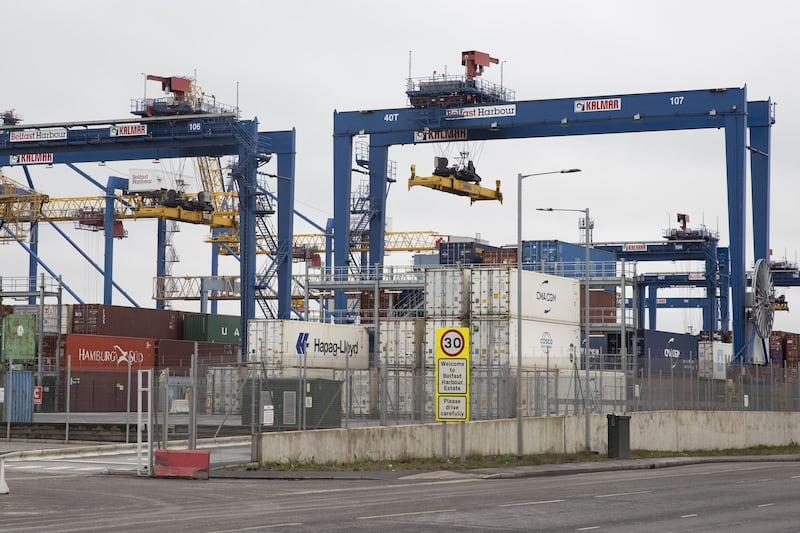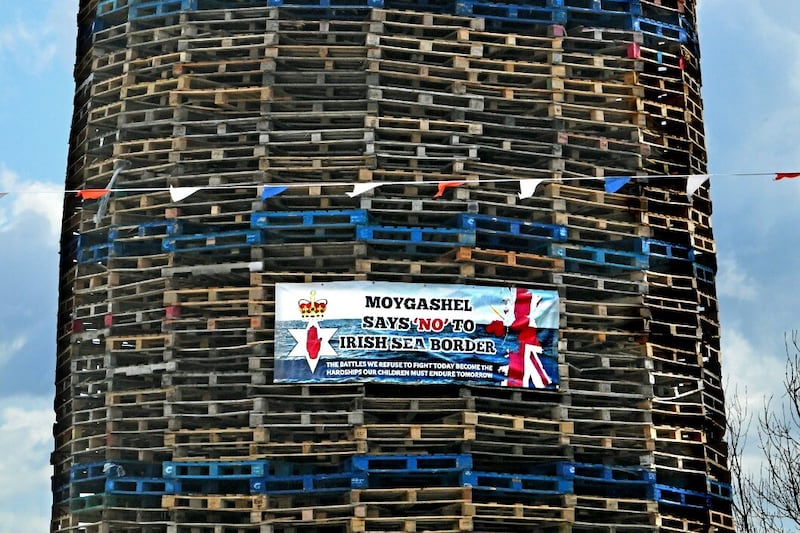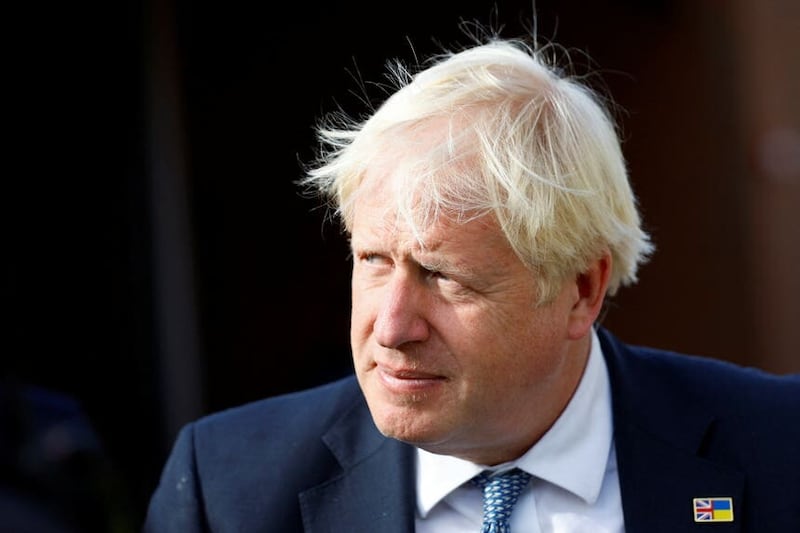While loyalists are entitled to set out their opposition to the introduction of the Irish Sea border, they must surely realise that a campaign which is based on unauthorised marches and provocative symbols is highly unlikely to gain momentum.
The demonstrations which have been staged in loyalist areas to date have been accompanied by a range of bellicose statements but have usually only managed to attract crowds of a few hundred people.
Although some unionists fear that their position has been undermined by the deal negotiated between Boris Johnson and the EU, others can see the considerable economic benefits of the protocol.
With secretary of state Brandon Lewis yesterday finally dropping his bizarre claim that the sea border does not exist, there is also a wider understanding that we are all facing the inevitable consequences of the DUP-endorsed Brexit process.
There will be concern that a placard carrying the blatantly threatening message, `Dublin's choice - peace or protocol ?', was prominently displayed in front of the platform party at a recent gathering in Newtownards.
Equally unacceptable posters involving an image of a masked gunman and the slogan `No border in the sea or we continue the fight' have been erected in the village of Newbuildings, on the outskirts of Derry city, and it is essential that the authorities take a serious view of all attempts to stir up tension in the approach to the marching season.
Both nationalists and loyalists have tried to effectively mark out territory in the past through the aggressive use of emblems, many of which are thankfully no longer in place.
It is alarming that concerted attempts are now under way to increase the number of union flags on display in mixed neighbourhoods including the Ormeau Road in Belfast, Carnmoney, Lisburn, Lurgan and Portadown.
Scores of flags have appeared against the clearly expressed wishes of residents, and, despite 150 complaints in Lisburn alone, the PSNI is still insisting that removing them is not its responsibility.
There is a growing sense that new legislation is required to address the issue, and what surely cannot be delayed any further is the release of the official report from the Commission on Flags, Identity, Culture and Tradition which was delivered to the Stormont Executive almost a year ago.
It is perturbing that it remains unpublished and there will be a firm expectation of progress in the near future.







